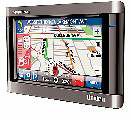Your GPS may be a dashboard snitch
Published 4:00 am Wednesday, November 26, 2008

- GPS units essentially keep vehicles under 24/7 surveillance.
In their cocoons of leather upholstery, soothing high-tech sound systems and automatically activated personal seat settings, drivers have come to regard their car interiors as mobile extensions of the homes that are their private refuges.
The courts have tended to disagree.
GPS devices and factory-installed “black box” data recorders effectively keep late-model vehicles under surveillance 24/7, providing evidence that can put a suspect at a crime scene, undermine an alibi or prove liability in an accident.
Privacy rights advocates warn that the devices augment an already intrusive network of cameras, radars and databases, but police and prosecutors hail the technologies as powerful investigative and forensic tools.
GPS tracking records introduced at trial put a Yolo County, Calif., man at the scene of arson fires, leading to his conviction in October for setting a dozen blazes in 2006.
In murder cases in Illinois, Washington and California, including the trial of Scott Peterson for killing his wife and unborn son, the technology has been credited with helping establish guilt.
The evidence is sometimes the product of unwitting self-surveillance. GPS units keep positioning tracks that, if not erased, create a record of a person’s movements.
Who’s being tracked?
Event data recorders are standard equipment in most new cars. They record speed, braking, signaling and other driving behaviors, and can show investigators vital details about what led to a crash.
Wisconsin attorney David Schumann, who did some of the earliest legal analysis of GPS potential, points out its usefulness in tracking suspects, locating victims and monitoring released convicts.
“There are cases where people have gotten hung by their own GPS, bought for purposes of evading the law only to have it used against them,” Schumann said of drug traffickers and migrant smugglers caught with evidence they unknowingly gathered against themselves.
He also recalled the case of a Wisconsin man compelled to plead no contest to felony charges after using a GPS to stalk a former girlfriend.
Corporate owners of car and truck fleets, like rental and delivery companies, legally can track their vehicles and act on employee misconduct detected in the process.
But “Tracks of third parties, or of their property, without their knowledge are probably inadmissible and even illegal unless the tracks are conducted by law enforcement,” Schumann said.
Also, in a slap at unauthorized consumer surveillance, state courts in Connecticut and California have struck down rental-car company practices of imposing surcharges based on GPS detection of excessive speeds or prohibited out-of-state travel.
California banned such tracking four years ago, but rights advocates remain wary of the expanding surveillance.
“We are always concerned about individuals being tracked without their knowledge or informed consent,” said Tori Praul, privacy researcher for the American Civil Liberties Union of Southern California.
Double-edged sword
Advocates of the new investigative tools claim that the evidence cuts both ways.
In a recent trial in Sonoma, Calif., an 18-year-old driver was acquitted of speeding charges after data from his car’s GPS unit refuted police contentions.
As with DNA evidence, lawyers must rely on expert witnesses to interpret for a jury the data provided by GPS or automotive black boxes. Jon Price, a trainer with leading GPS producer Garmin Ltd., has testified in six trials, including two murder cases, in which the tracking information helped win convictions.
“There are limitations to it,” Price said. “Especially when it comes to some things law enforcement would like to do with it. The GPS position we’re going to calculate for you is only going to be accurate within about 20 to 25 feet. If there is a question about what lane they were in or which side of a divided highway, you can’t really tell.”
In the privacy debate, courts so far have come down on the side of taking advantage of the crime-solving value of the technologies.
The 7th U.S. Circuit Court of Appeals issued a landmark ruling last year that GPS tracking of a suspected methamphetamine manufacturer didn’t constitute unreasonable search or seizure as proscribed by the Fourth Amendment.
Law enforcement tool
The technology can be a huge cost-saver in keeping tabs on released convicts, said Sid Heal, a recently retired commander responsible for technology development with the L.A. County Sheriff’s Department.
“You set it so you have an alert if the guy gets within X number of feet of another felon or from a schoolyard,” he said of ankle bracelet monitors and auto-mounted units.
Law enforcement is benefiting tremendously from the technologies as an investigative tool, he said.
“GPS transmitters are so cheap and available that they are already in use and provide advantages beyond anything we’ve ever had, to include the exact route a vehicle travels, where it parks, for how long and many other things,” Heal said.
GPS use has mushroomed, from about 550,000 units in civilian hands in 2004 to 15 million this year, according to the Consumer Electronics Association.
The black boxes installed in new cars have the potential to provide insurance companies with accident information useful in defending or prosecuting claims, and many insurance policies contain fine print obliging drivers to turn over the event data recorders in liability investigations.
“That’s my problem with this, from the privacy perspective,” John Soma, a University of Denver law professor and executive director of its Privacy Foundation, said of event data recorders and of authorities reviewing the stored information.
“The car comes equipped with it. They can’t disable it. There hasn’t been any meaningful legislative discussion of this or any meaningful notice that this is now in your car.”
Soma worries that the law enforcement view is that only people with something to hide would have objections to being under surveillance.
“I think that assumption is wrong,” he said.
Soma is calling for public discourse on what limits are appropriate to a technology that can track and record a driver’s every movement.






